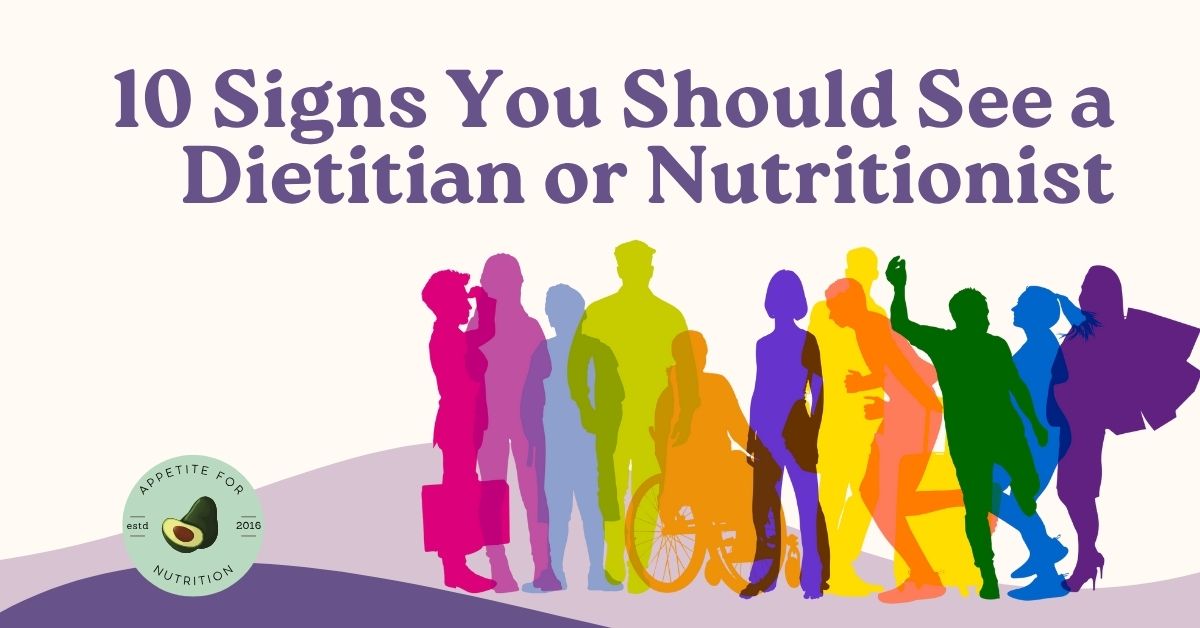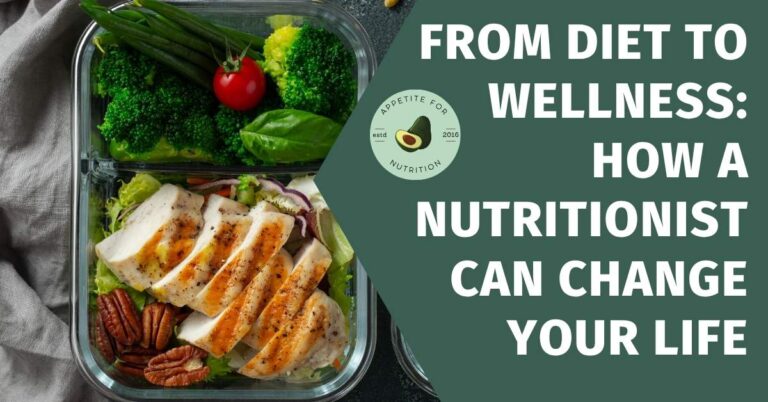
10 Signs You Should See a Dietitian or Nutritionist
Proper nutrition is one of the most powerful ways to achieve lasting well-being. Yet many people struggle to make the right food choices due to lifestyle, medical conditions, or confusion about what’s truly “healthy.”
That’s where a qualified dietitian or nutritionist can help — guiding you toward balanced, sustainable eating habits tailored to your individual needs.
If you’re unsure whether it’s time to seek professional support, here are the top signs you should see a dietitian or nutritionist (and when an NDIS-registered dietitian may be best).
1. You Struggle with Digestive Issues
Frequent bloating, gas, constipation, or diarrhoea can signal gut imbalances, food intolerances, or low fibre intake.
A gut-health dietitian can identify triggers and design a personalised gut-friendly plan rich in probiotics, fibre, and anti-inflammatory foods to restore digestive balance.
2. You Have an Eating Disorder or Disordered Eating Patterns
If you find yourself obsessing over food, restricting, bingeing, or feeling guilt after eating, an eating disorder dietitian can help.
They work alongside psychologists and healthcare professionals to rebuild a positive relationship with food and support long-term recovery.
3. You Experience Chronic Fatigue or Low Energy
Constant tiredness may be linked to nutrient deficiencies such as iron, B12, or magnesium, or to unbalanced eating habits.
A dietitian can assess your diet, correct deficiencies, and build an energy-supportive meal plan that restores vitality and focus.
4. You Notice Unexplained Weight Changes
Unexpected weight loss or gain can indicate underlying metabolic or hormonal issues.
A nutritionist can help stabilise your weight through personalised, realistic meal planning — whether you’re looking to lose, gain, or maintain weight healthily.
5. You Have a Chronic Health Condition
If you’re managing diabetes, heart disease, high blood pressure, or an autoimmune condition, nutrition plays a vital role in your care.
A dietitian in Victoria and Queensland can help you balance nutrients, stabilise blood sugar, and reduce inflammation for long-term health.
If you’re under the NDIS, an NDIS-approved dietitian can provide tailored nutrition therapy that aligns with your plan goals.
6. You Suspect Food Allergies or Intolerances
When certain foods cause skin rashes, bloating, or fatigue, a dietitian can guide you through an elimination and reintroduction process to safely identify triggers.
They’ll create an allergy-friendly plan that still covers all essential nutrients.
7. You’re Pregnant or Trying to Conceive
Nutrition before and during pregnancy is essential for both mother and baby.
A prenatal dietitian helps meet higher nutrient needs, manage nausea and cravings, and reduce the risk of gestational diabetes or deficiencies — supporting healthy growth and recovery.
8. You Find It Hard to Eat a Balanced Diet
If your meals lack variety or feel repetitive, a nutritionist can help you add more balance and enjoyment to your diet.
They’ll teach practical meal-planning strategies, label reading, and how to make healthier swaps that fit your routine.
9. You’re an Athlete or Exercise Regularly
Active individuals need the right mix of carbs, protein, and fats for performance and recovery.
A sports dietitian can tailor your nutrition to support endurance, muscle growth, and faster recovery while preventing fatigue and injury.
10. You Need Nutrition Support Under the NDIS
If you’re an NDIS participant, an NDIS-registered dietitian can help you build healthy eating habits and independence.
They design meal plans suited to your medical needs, lifestyle, and NDIS funding category — helping you reach both your health and plan goals.
Wrapping Up
Working with a dietitian or nutritionist can transform your health — improving energy, digestion, and confidence in your food choices.
Whether you’re managing a chronic condition, rebuilding your relationship with food, or simply wanting to feel your best, professional support ensures you’re guided by evidence, not fads.
Take the first step today.
Book a consultation with our qualified dietitians and nutritionists to start your journey toward better energy, digestion, and long-term well-being.
This blog was last updated October 2025.
Frequency Asked Questions
Find quick answers to common questions about our dietitian services, NDIS support, Telehealth appointments, and booking process.
Dietitians have completed additional clinical training and are qualified to work with medical conditions and NDIS participants. Nutritionists provide expert dietary advice and education for general health and wellbeing.
Yes. If your plan includes Capacity Building – Improved Health and Wellbeing or Core Supports, you may be eligible for dietitian services under the NDIS.
Absolutely. Research shows that telehealth nutrition consultations are just as effective as face-to-face sessions, offering flexibility and ongoing support.
You can book online, call our team, or ask your healthcare provider or NDIS coordinator to send a referral.
Our admin team will match you with the right dietitian for your needs and location.
It depends on your goals. Many clients benefit from an initial consultation followed by fortnightly or monthly reviews to monitor progress and adjust plans.
Your dietitian will design a plan that meets your medical, cultural, and personal needs — ensuring your meals are both safe and nutritionally balanced.



